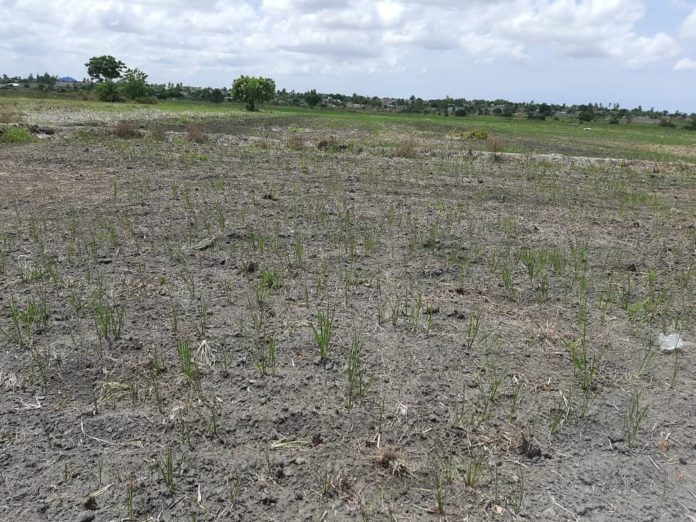The Ghana Rice Inter-Professional Body (GRIB) has revealed that rice production in the Volta Region of Ghana faces bleak consequences this year due to ongoing drought conditions which are disrupting production in some parts of the Region.
According to the body, farmers in the Akatsi North and South districts in the Volta Region have been gravely affected by poor rainfall patterns and are likely to lose their entire output for the 2021/2022 season.
“In Ketu South alone, over 700 hectares of rice have been lost to the drought. “The problem covers several areas including Kpoglu, Avalavi, Klenomadi and Avie in Ketu North, Akatsi in Akatsi South, Tongu Districts, Afadzato South District and Hohoe Municipal areas,” the President said.
This comes as a blow to the sector, which is an attempt to wean the country off rice importation by achieving self-sufficiency in production by 2025.
As if that is not enough, the affected farmers will have to wait till next year before they can earn some income.
Speaking to the reporter, President of GRIB Nana Agyei Ayeh II said some members of the farmers reached out to him to ascertain the situation and find a solution to the looming danger.
The President, together with some of the officials of the John A. Kufuor Foundation paid a working visit to the farms, and on their observation, several hectares of rice under cultivation are lost due to climate change and low levels of rainfall in these communities.
The woes of the farmers are further exacerbated by the huge investments they have already made in land preparation, seeds, and fertilizer.
However, the provisional production figures by the Ministry of Food and Agriculture (MoFA) indicate that about 973, 000 metric tonnes of rice were produced in Ghana in 2020. But, this figure could be hard to match in 2021 if the current situation persists.
Nana Agyei Ayeh II revealed that the existing dam structure which was built to harvest water to irrigate the farmlands is in a dire state of disrepair, leaving farmers at the mercy of the harsh weather conditions.
“We cannot continue with rain-fed agriculture. As you can see, this year, farmers have lost their investments simply because the rains failed them.
We would like to appeal to the Ministry of Food and Agriculture to provide dugouts for these areas. These will aid in water conservations for the purposes of irrigation in such times like what we facing now” he added.








